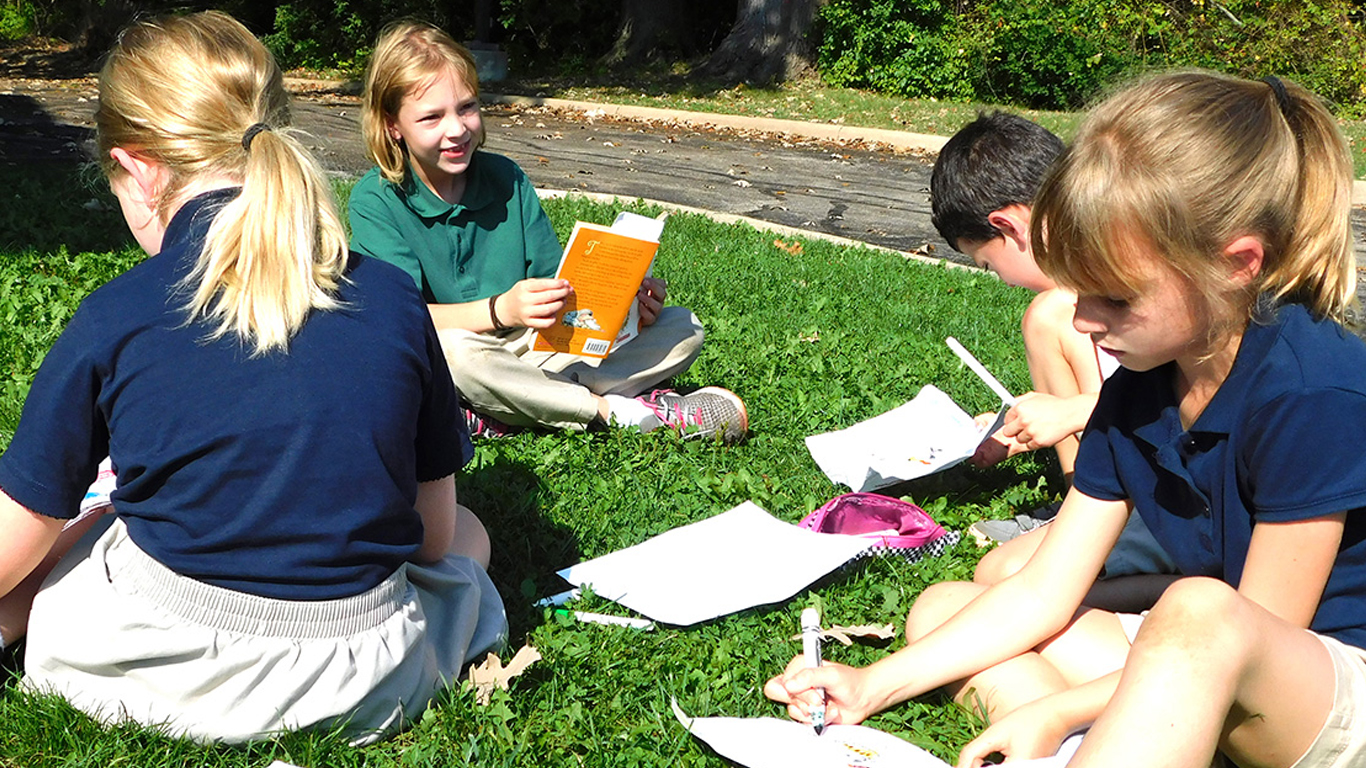In a recent presentation I made to young moms, the question was asked, “What do you wish all parents knew before their child starts school?” While I can answer this thought-provoking query from the perspective of someone who’s been in the school business for three decades, I perhaps am better thinking about what I wish I myself had understood before my own children began trotting off to kindergarten years ago. With a little hindsight, I have five basic thoughts.
1. The education of children is the responsibility of the parents, not the school. As parents, God has given us the responsibility to train up our children in a way that honors the Lord. This means helping our children to see God for who he is, to recognize his truth, beauty and goodness wherever we go and to understand their place in God’s kingdom. As parents, we are to be the head teachers and lead pastors of our children. As such, we carefully choose the schooling venue and method for our children but realize that education is a 24/7, life-long endeavor. We are to lead our children in learnedness regardless of our educational degrees or lack of them.
Practically, it means taking daily interest in their schooling, reading together instead of watching TV, engaging the museums and cultural centers around us, learning new things together, serving together and providing opportunities to think with puzzles, games, music and books. Young children have a great capacity for memorization and we parents should capitalize on that with bible memorization and math facts and geography. As they get older, discussion (not lecture) of current events, theology, tough questions and life lessons ought to be considered quite normal around the dinner table. As parents we are simply to be about the business of becoming the people we wish our children to be. Consider St. Paul’s words when he instructed the church of Corinth: Follow my example as I follow the example of Christ (I Corin. 11:1).
2. Children are made in God’s image with amazing attributes, gifts and potential – just like their parents. We are to study our children and look for these God-given qualities that we might affirm them. “Wow. You really have a knack for…” is a comment that will stick. This should not be left to the school teachers alone and a child should not see their self-worth tied so strongly to school report cards. I know one family that celebrates each child’s birthday by intentionally zeroing in on God’s image-bearing attributes of the child with every family member chiming in. This is a week-long endeavor orchestrated each year. Help your children see that they, their siblings, neighbors and classmates are each fearfully and wonderfully made. (Psalm 139:14)
3. Our children will have problems, will act selfishly and won’t always tell the truth. They are sinners – just like their parents! This is a hard reality for some of us. “My child would never lie to me” is only spoken by naïve parents. When I ask groups of parents,“How many of you ever lied to your own parents?” all hands go up (except those who are lying to the rest of us). When I ask children that same question, all of their hands go up. This means, Mom and Dad, they will sometimes hedge the truth about schoolwork, homework or what happened on the playground. It means they might also deceive their teacher from time to time. I often tell parents, “If you don’t believe everything your child says about what happens at school, we won’t believe everything he tells us about what happens at home.” Teachers and parents must work together to shepherd children in truth, helping them become people of integrity. (Proverbs 10:9)
4. Schools are made up of people, not experts. While teachers are typically trained in the content of their subject matter, instructional methods and some child development, none of them (save Jesus) are all knowing, always wise and perfectly correct in dealing with each child in their charge. They, just like the parents of the children they serve, are imperfect people who sometimes misjudge, have bad days and struggle to juggle multiple priorities. Teachers make split-second decisions hundreds of times per day. While really good teachers will get it right as much as the best television meteorologist, making mistakes just goes with the territory. As parents, that means we need to encourage teachers, grant them grace and initiate communication. Pray daily for your child’s teachers. Mail a handwritten note of appreciation. Send an email that simply says, “Just checking on how Julie is doing in math since we last talked.” Teachers and parents are imperfect partners, but partners nonetheless. Even the best of men are men at best (Puritan clergyman John Flavel).
5. We have only one opportunity to educate our children. The work we do early on will affect the future. Thus, we need to order our priorities carefully.
Hear, O Israel: The Lord our God, the Lord is one. You shall love the Lord your God with all your heart and with all your soul and with all your might. And these words that I command you today shall be on your heart. You shall teach them diligently to your children, and shall talk of them when you sit in your house, and when you walk by the way, and when you lie down, and when you rise. (Deuteronomy 6:4-7)



